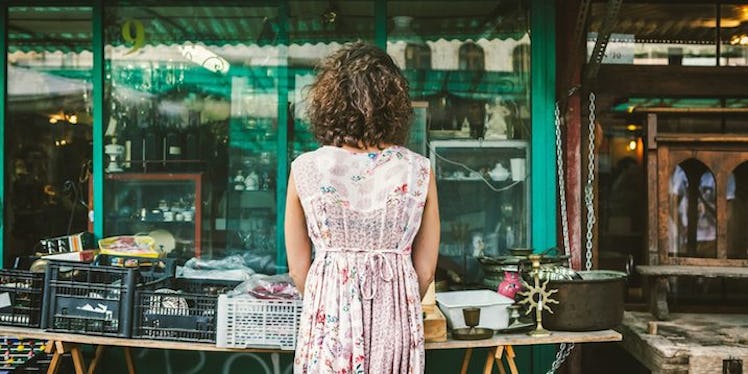
How Italian Street Harassment Is Different From Harassment In The US
"Just keep your head down. Don't make eye contact, and you'll get through it," I say to myself each morning as I walk the commute from my Florentine apartment to class on the Arno.
I am living the dream: I'm spending four months in Florence, Italy, indulging in the best food, wine and culture in the world. This morning, I wore a sleeveless shirt and jeans in the warm weather.
I've been soaking up the sun and taking in once more the amazing experience I receive here in Florence. I keep reminding myself yet again how lucky I am to study here for four months. This experience could not be more perfect, right?
But there is one lingering imperfection to my utopia here in Florence: men.
When I first arrived here, I was warned by all the women I knew who had studied or visited Italy about the catcalling and street harassment. Even the police officer who spoke to the arriving students at orientation acknowledged the conventional catcalls on the street by Italian men onto women.... most often with the phrase, “Ciao bella.”
Nine times out of 10, this comment is essentially harmless. As I grew up near New York City and spent my weekends in Manhattan, I was used to this treatment. I had programmed myself to ignore it.
In fact, many men who catcall expect no results from their commentary. They anticipate women to look away, and they continue walking without any response. Many are satisfied with this unfeeling reaction, and do not pursue the target.
Head down, no eye contact: That was my strategy. And most times in Italy or New York, it works.
But there are inevitably men who simply don't care your head is down and your eyes are averted. Sometimes, they take the split second of accidental eye contact when you raise your head as an invitation to “flatter you.”
This experience continues to both shock and confuse me. In 2017, it seems undeniable women find this form of “flattery” or “compliment” on the street that's hinged to physical appearance at best, unpleasant... and at worst, distressing.
Women have continuously voiced their discomfort with catcalling in art and politics: This has most notably been seen in Sofie Peeter's film on Belgian street harassment and Soshanna B. Robert's similar video in New York City. But it has also been seen through nonprofit organizations and advocacy groups like Anti-Street Harassment UK.
All of these women and organizations loudly voice disapproval of this common, often overlooked practice of street harassment. And yet, the culture of “ciao bella” continues... not only in Italy, but also throughout Europe and the United States.
I was warned that media culture in the United States — which spreads and dominates worldwide — promotes American women as promiscuous, thereby inviting catcalls on the street. My blonde highlights and bronzed skin only accentuate my status as an outsider who is more vulnerable to sexual assault and harassment abroad.
Because I don't look Tuscan and am most often predicted to be “from California,” it is assumed I am sexually uninhibited. It's assumed I'm fine with – and maybe even flattered by – compliments about my appearance received on the street.
Let me make one thing clear: Street harassment is not flattering or complimentary.
“Ciao bella” by a man walking nearby does not make me feel beautiful or valued. I feel harassed and uncomfortable, like I can't wear sleeveless shirts on a warm day, get blonde highlights in my hair or walk freely from my apartment to class in the morning.
“Ciao bella” makes me feel afraid of walking home at night from a bar, even when it's only a minute away.
“Ciao bella” makes me stop and watch a video on my Facebook feed about female self-defense strategies, just in case I end up alone and attacked by a man on the street.
No woman should feel exposed on her commute, feel uncomfortable in her city or feel victimized by men who believe street commentary is flattering or complimentary.
I feel beautiful on my own. I can look in the mirror each morning and see my value and my beauty. I do not need a man on the street telling me what I already know.